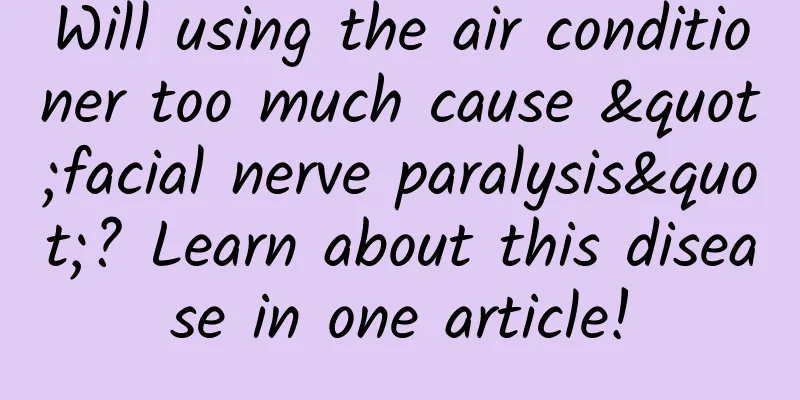Don't ignore extra teeth! ——Things about extra teeth

|
Author: Sun Fang Guangdong Provincial People's Hospital Qiu Qianhui, Chief Physician, Guangdong Provincial People's Hospital Reviewer: Liu Tao, Chief Physician, Guangdong Provincial People's Hospital Recently, our department received a 17-year-old girl named Xiao Huang, who was hospitalized due to pain on the right side of her face. After careful inquiry into her medical history, we learned that the pain on her right side of her face started a month ago. At first it was just a slight pain and she could still bear it, but the pain would intensify when she pressed her right face with her hands. At first, she didn't care too much, but as time went on, the pain became more and more severe, accompanied by gum pain, difficulty opening her mouth, and pain in her right eye. However, she did not have symptoms such as nasal congestion, runny nose, nosebleeds, decreased sense of smell, decreased vision, difficulty in eye movement, and her hearing was normal. The CT scan that Xiao Huang had done in other hospitals showed that the image of the right maxillary sinus was abnormal, as if it was filled with something, and there were signs of bone absorption and destruction. Figure 1 Copyright image, no permission to reprint The doctor in our department initially suspected that she had maxillary sinusitis, so he performed relevant blood tests, nasal endoscopy and sinus CT scans on her. No abnormalities were found under the nasal endoscopy, and the sinus CT report also suggested right maxillary sinusitis. However, after carefully studying the CT scan, the doctor found an abnormality: a complete tooth grew horizontally in her right maxillary sinus, and there was a cyst-like object next to the tooth. Figure 2 Copyright image, no permission to reprint After the diagnosis of maxillary sinus cyst, the doctor and the family discussed the surgical plan and risks in detail, and finally decided to perform endoscopic maxillary sinus cyst resection and tooth extraction. During the operation, the doctor completely removed the cyst and extracted the tooth from the maxillary sinus. After the operation, it was found that Xiao Huang's right face pain was relieved and it became easier to open his mouth. Figure 3 Copyright image, no permission to reprint 1. About extra teeth "Super teeth" refer to teeth that exceed the normal number, which are generally found in the front teeth area of the maxilla. They can be buried in the bones or found in the nasal cavity and other parts. Although some patients may have no symptoms at all, the eruption of extra teeth can cause a variety of problems. If the extra tooth erupts in the dental area, it may cause malocclusion, crowding of adjacent teeth, delayed tooth eruption, and may also cause larger tooth spaces, tooth twisting, and may cause periodontal cysts. In addition, extra teeth may also cause the formation of sinus cysts. If the extra tooth erupts in the nasal cavity, the patient may experience mild facial pain, a foreign body sensation in the nasal cavity, nasal congestion, headache, external nasal deviation, and even oronasal fistula (that is, the oral cavity and nasal cavity are connected). In rare cases, the extra tooth may also erupt from the maxillary sinus, mandible, orbital cavity, or even penetrate the skin, which may manifest as symptoms such as nasal pain, facial pain, and orbital pain. Some patients may develop maxillary sinus cysts because the extra tooth erupts in the maxillary sinus, and have symptoms such as maxillofacial pain and limited mouth opening. The extra tooth of Xiao Huang above erupted in the maxillary sinus. 2. Who is prone to having extra teeth? 1. Infants and young children from 6 months to 1 year old: Because the 6th month after a child is born is the teething period, and 6 months to 1 year old is the stage of tooth growth, extra teeth may appear. 2. Children in the period of tooth replacement: Extra teeth may appear during the process of children's tooth growth and replacement. 3. Adolescents (12 to 18 years old): This stage is a critical period for tooth growth and development, so extra teeth are more likely to appear. 4. People with underdeveloped or overdeveloped teeth: Abnormal tooth development may lead to the appearance of extra teeth. 5. People with a family history of extra teeth: Genetic factors are also an important cause of extra teeth. If a person's immediate family members, such as parents or siblings, have extra teeth, then the probability of this person having extra teeth is greater than that of ordinary people. 3. In what cases do extra teeth need to be treated? The treatment of extra teeth mainly depends on their number, location and whether they cause symptoms. Treatment is required in the following cases: If the eruption of extra teeth causes uneven teeth or crowding, correction or extraction is required; if the extra teeth squeeze normal teeth and cause pain or discomfort, they must be treated; if the extra teeth erupt ectopically, such as from the nasal cavity, mandible or even orbit, they may cause a series of complications and require timely intervention; if the extra teeth cause odontogenic cysts, such as maxillary sinus odontogenic cysts, they should also be treated. For small, unerupted and asymptomatic extra teeth, usually no treatment is required and regular observation is sufficient. 4. How to deal with extra teeth? 1. For extra teeth without symptoms, no special treatment is required. 2. Drug treatment: If the extra teeth cause toothache, periodontitis and other discomforts, you can use antibiotics such as penicillin and cephalosporin under the guidance of a doctor. They can fight infection and effectively relieve pain and inflammation. 3. Tooth extraction: Erupted extra teeth can cause crowding of adjacent teeth, tooth misalignment, or prevent normal teeth from erupting, so they often need to be extracted. Unerupted extra teeth should also generally be extracted because cysts may develop around the crown of the extra tooth. If there are no symptoms, the extra tooth can be retained, but it should also be observed regularly. 4. Orthodontic correction: If the extra teeth cause crowding or uneven arrangement of teeth, which seriously affects the bite or face shape, orthodontic treatment should be performed. Orthodontic treatment lasts for a long time, and patients need to have regular follow-up visits and adjust the braces according to the condition until the orthodontic treatment is completed. 5. How to stay away from extra teeth? During the period when children are replacing their baby teeth, parents should pay more attention to their children's tooth changes to prevent the extra teeth from affecting the eruption of permanent teeth or causing tooth deformities. For children with developmental defects, such as malnutrition, lack of trace elements, etc., parents should also pay more attention to the growth of their children's teeth. For those with a family history of extra teeth, it is important to actively prevent the appearance of extra teeth. During physical examinations, it is important to pay attention to the oral examination. If extra teeth are found, consult a doctor in a timely manner. 6. One of the complications caused by extra teeth: odontogenic cyst An odontogenic cyst is a cyst formed due to developmental disorders or lesions of teeth. It is common in people aged 10 to 39 years old, and is more common in men than in women. Cyst types include dentigerous cysts and periapical cysts. Patients often present with symptoms such as nasal congestion, facial swelling and pain, runny nose, persistent fever, and headache. For the treatment of odontogenic cysts, asymptomatic patients can be observed regularly, while symptomatic patients require surgical treatment. Among them, endoscopic minimally invasive surgery can reduce patient damage and help them recover faster. After saying so much, I think everyone has a certain understanding of supernumerary teeth. If you suspect that you also have supernumerary teeth, you must pay attention to it and seek medical treatment in time! 【References】 [1] Kong Weiren, Zhou Liang. Otorhinolaryngology, Head and Neck Surgery[M]. Beijing: People's Medical Publishing House, 2015. [2] Chen Xuejun, Kang Chunhui, Guo Haibo, et al. Clinical analysis of 980 supernumerary teeth[J]. Stomatology, 2008, 34(4): 223-224. [3] Yu Chungang, Yue Fengshu. A case of giant dentigerous cyst on the inner wall of the maxillary sinus [J]. Journal of Otolaryngology and Ophthalmology of Shandong University, 2011, 25(4): 68. [4] Liu Qiang, Zhang Haidong. A case of extra teeth in the right nasal cavity[J]. Journal of Practical Medicine, 2014, 30(3): 483. |
<<: Eat the right persimmons and your life will be as you wish
>>: Early identification of autism in children makes love less lonely
Recommend
Why is there brown discharge 15 days after abortion?
Abortion can cause serious harm to women's bo...
2020 Health Review: "Internet + Medical" experience upgrades to benefit the people and show real results
"It took less than 24 hours from the start o...
Diseases that women should be alert to when their hands become numb
We all know or have similar experiences, that is,...
Can I soak my feet during my period?
Menstruation is the most important physiological ...
What are the methods of women's summer health soup?
The hot summer always brings great troubles to pe...
What is the best treatment for vulvar leukoplakia?
Vulvar leukoplakia is a common gynecological dise...
Why do I have backache during my period?
Most women often feel back pain when their period...
Itchy! Itchy! Itchy! Countless pregnant mothers are crazy about it! Do you know about intrahepatic cholestasis of pregnancy?
A 36-year-old pregnant woman, 36+3 weeks pregnant...
What's wrong with black menstruation?
In our lives, many people have the problem of bla...
Can I have sex after having my IUD inserted for a week?
After giving birth, if a woman does not plan to g...
What are the treatments for female sexual indifference?
Sexual indifference is an important factor that d...
What should you avoid during sex after cervical conization?
There are many gynecological diseases around fema...
What is going on when you have too many periods?
As people's living standards improve, their l...
Women, please pay attention! Gynecological diseases are actually transmitted to you in this way
Nowadays, women are very prone to gynecological d...









